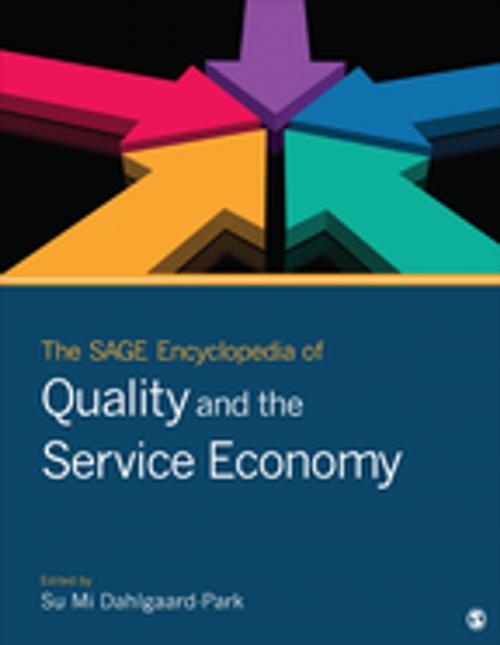The SAGE Encyclopedia of Quality and the Service Economy
Business & Finance, Management & Leadership, Production & Operations Management, Business Reference| Author: | ISBN: | 9781506315058 | |
| Publisher: | SAGE Publications | Publication: | May 29, 2015 |
| Imprint: | SAGE Publications, Inc | Language: | English |
| Author: | |
| ISBN: | 9781506315058 |
| Publisher: | SAGE Publications |
| Publication: | May 29, 2015 |
| Imprint: | SAGE Publications, Inc |
| Language: | English |
Society, globally, has entered into what might be called the “service economy.” Services now constitute the largest share of GDP in most countries and provide the major source of employment in both developed and developing countries. Services permeate all aspects of peoples’ lives and are becoming inseparable from most aspects of economic activity. “Quality management” has been a dominating managerial practice since World War II. With quality management initially associated with manufacturing industries, one might assume the relevance of quality management might decrease with the emergence of the service economy. To the contrary, the emergence of the service economy strengthened the importance of quality issues, which no longer are associated only with manufacturing industries but are increasingly applied in all service sectors, as well. Today, we talk not only about product or service quality but have even expanded the framework of quality to quality of life and quality of environment. Thus, quality and services have emerged in parallel as closely interrelated fields. The Encyclopedia of Quality and the Service Economy explores such relevant questions as: What are the characteristics, nature, and definitions of quality and services? How do we define quality of products, quality of services, or quality of life? How are services distinguished from goods? How do we measure various aspects of quality and services? How can products and service quality be managed most effectively and efficiently? What is the role of customers in creation of values? These questions and more are explored within the pages of this two-volume, A-to-Z reference work.
Society, globally, has entered into what might be called the “service economy.” Services now constitute the largest share of GDP in most countries and provide the major source of employment in both developed and developing countries. Services permeate all aspects of peoples’ lives and are becoming inseparable from most aspects of economic activity. “Quality management” has been a dominating managerial practice since World War II. With quality management initially associated with manufacturing industries, one might assume the relevance of quality management might decrease with the emergence of the service economy. To the contrary, the emergence of the service economy strengthened the importance of quality issues, which no longer are associated only with manufacturing industries but are increasingly applied in all service sectors, as well. Today, we talk not only about product or service quality but have even expanded the framework of quality to quality of life and quality of environment. Thus, quality and services have emerged in parallel as closely interrelated fields. The Encyclopedia of Quality and the Service Economy explores such relevant questions as: What are the characteristics, nature, and definitions of quality and services? How do we define quality of products, quality of services, or quality of life? How are services distinguished from goods? How do we measure various aspects of quality and services? How can products and service quality be managed most effectively and efficiently? What is the role of customers in creation of values? These questions and more are explored within the pages of this two-volume, A-to-Z reference work.















